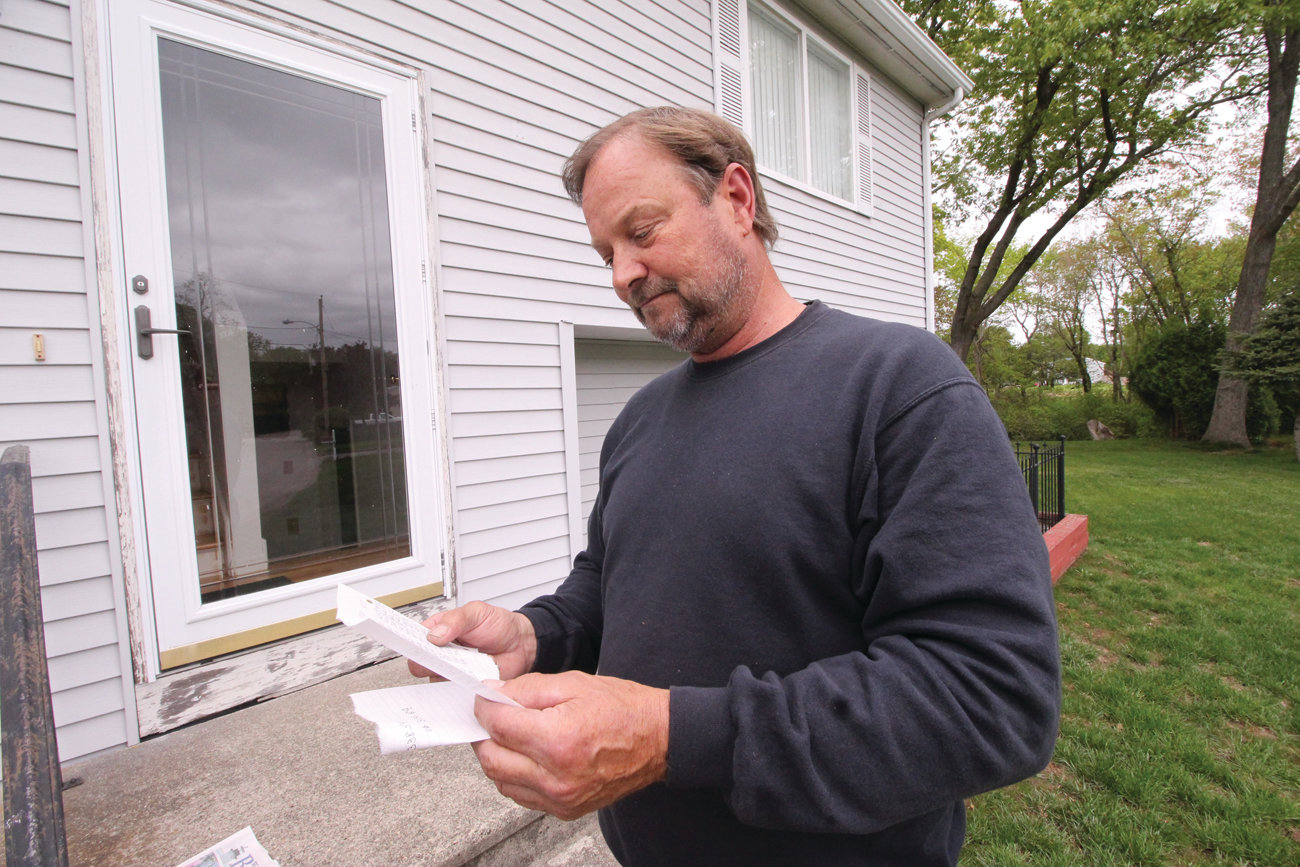Doing math, homeowner finds his taxes would increase 22%
When Al Johnson bought his “brand new” home on Edythe Street in 1994 he paid $96,000.
Over the years he’s seen the assessed value of the 800-square-foot house go up. He expected that. After all, the cost of housing has gone up even accounting for the 2008 precipitous dive in the housing market that left many homeowners owing more on their mortgages than what they could sell their homes for.
But the hot housing market of the past three years has thrown Johnson a curve that has him questioning his plan to retire in several years and spend more time doing what he loves – fishing.
In the recently completed revaluation as of Dec. 31, 2018, the value of Johnson’s shot from $147,900 to $201,200. Johnson thought that was a big increase until he looked around. He thinks he might even be able to get a little more for his house if he wanted to. That’s a plus; however, he has no intention of moving from the secluded dead end off Warwick Avenue across from Morris Farm. So, what does that mean?
Johnson calculated what he would be pay in taxes under Mayor Joseph Solomon’s proposed $323 million budget that will come before the City Council tonight, with hearings slated to continue Wednesday. His real estate tax would jump from $3,076.32 to $3,768.97, an increase of $692.32 or 22 percent.
How could this be when the mayor takes pride in the fact he crafted a budget that calls for less than the 4 percent maximum allowable increase in the levy?
Johnson knows the answer, although that is of no consolation.
An additional $692.32 is like adding a fifth quarterly payment when he hasn’t seen a similar increase in his wages. A mechanic and member of Local 057 of Operating Engineers, Johnson has seen 3 percent wage increases for the past couple of years.
The answer to how Johnson could see a 22 percent increase in his taxes when the tax levy won’t increase by more than 4 percent is based on the new and higher property valuation.
It’s also reflective of what the single housing market has done over the past three years. Houses valued in the range of $130,000 to $200,000 in 2015 are in the greatest demand. That demand pushed up prices disproportional to the rest of the market in Warwick. Houses valued at $400,000 and higher didn’t sell as rapidly in the past three years and those valuations have been virtually static.
Just to be sure he wasn’t getting unfairly hit, Johnson looked at the past and new valuations of all 12 houses on Edythe Street and calculated their taxes based on the proposed budget. He wasn’t alone.
“This is how the budget is going to be made on the smaller people,” he said.
Johnson shared his findings with his neighbors.
“Nobody thought the taxes would increase that much,” he said. He plans to attend tonight’s budget hearing and he expects some neighbors will be accompanying him.
But what can be done?
The home values are the values, says City Tax Assessor Neal Dupuis. In an interview Friday, Dupuis said Vision Government Solutions that performed the revaluation did not look at the previous valuation but rather established a value as of Dec. 31, 2018. Of the city’s 40,000 property valuations, Dupuis said about 1,100 people scheduled an appointment with Vision to review their valuation with about 1,000 actually attending a review.
Dupuis did not have a breakout of what properties experienced the greatest increase in valuations. Overall, the revaluation resulted in a 15 percent increase in the city’s tax rolls.
Generally, as he has said in the past, Dupuis confirmed during a revaluation values increase on about a third of the properties with another third remain the same and the final third seeing a drop.
Johnson accepts that, although he argues the burden of the budget is being shifted to the middle class and those who can least afford it.
Relief, as he sees it, has to come from cutting costs – and one place he would start is with pensions.
While he is a union member and has a pension, he said in recent years pension benefits have been cut. Why can’t that be the case with municipal plans, he asks.
He is annoyed that firefighters are contesting inclusion in the Tier II pension when other municipal employees are in the plan. That’s part of it. He thinks benefits must be reduced for retirees, too.
In one way, Johnson said the demand for his home and ones like it is welcome. His property is worth more. But when it comes to taxes, he’s not happy.
“Let the people win the lottery,” he said, “and let them pay.”







